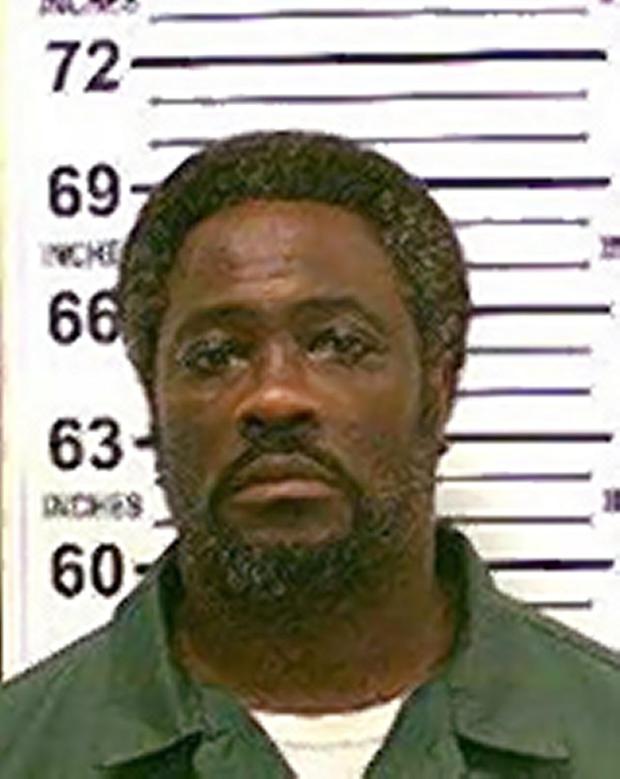Parole Board Revisits Case of Iconic NYC Officer’s Murderer
The Parole Board will reevaluate the case of David McClary, one of the individuals found guilty of the high-profile murder of Officer Edward Byrne in 1988, for the eighth time this month. The murder of the rookie officer in New York City, during a period of significant crime, has become iconic of a lawless era in the city’s history. 59-year-old McClary has yet to receive parole in his 36-year prison term, facing staunch resistance from the Police Benevolent Association and Edward Byrne’s surviving family members. This year, however, public advocacy for McClary’s release has noticeably increased, as indicated by several petitions from pastors and a retired city correction officer.
A number of influential individuals, including a pastor who had briefly served as an NYPD officer and a former parole commissioner, have drafted letters to the Parole Board arguing McClary’s case. Bronx Rev. Michael Peters, a retired city correction officer during the period of 1983 to 2003, is among those asserting McClary’s preparedness for release. Reverend Peters highlighted McClary’s dedication to programs aimed at guiding other prisoners away from criminal behaviour. McClary’s consistent commitment to such programs, despite repeated denials for parole, underscores his belief in crime reduction and rehabilitation, according to Peters.
Notwithstanding the growing support for McClary’s release, Officer Byrne’s family remains firmly against it. The late Lawrence Byrne, Edward’s sibling, who served as NYPD’s Chief Legal Counsel between 2014 and 2018, had strongly opposed this possibility during his lifetime. His passing occurred in December 2020. Kenneth Byrne, Edward’s brother and a retired attorney, spoke fervently about his brother’s interrupted life and condemned any suggestion of ‘progress’ reported by McClary during his time in prison.
Kenneth Byrne, now 56, emotionally recalls his brother’s ambitions, which were dramatically cut short by the terrible crime. Edward Byrne, who was merely 22 when murdered, had plans to propose to his sweetheart, marry, and start a family. Hoffnungslos, all such plans vanished together with his life. Kenneth firmly asserts that none of the individuals involved in Edward’s murder deserves a renewed opportunity at life, echoing the sentiments of many within the Law Enforcement community.
The attack on Officer Byrne occurred on February 26, 1988, while he was safeguarding the residence of a witness in Queens by himself. McClary, along with three other accomplices, ambushed Byrne, leading to tragic gunfire. McClary was the triggerman, and Todd Scott distracted Byrne by tapping on his car’s passenger window, according to records. Scott Cobb played the role of the escape driver, while Philip Copeland ensured that the execution happened as planned.
They were all acting under instructions from Howard “Pappy” Mason, a celebrated leader in the crack cocaine market. Mason ordered Byrne’s assassination from within prison in retaliation for his arrest due to firearm possession. Mason currently resides in a Bureau of Prisons medical facility based in Massachusetts.
The brutal murder of Officer Byrne played a pivotal role in shaping public and policy responses to the out-of-control crime rates during the peak of the crack epidemic. Stirring up a nationwide call for harsher law enforcement, Byrne’s death spearheaded increased federal funding for law enforcement agencies. In memory of Byrne, the Justice Department even established a grant program under his name, which is still operational.
As per the records, McClary entered the prison system on June 28, 1989, and is presently incarcerated at Wende Correctional Facility near Buffalo, sharing the premises with some infamous criminals. Each of the four men convicted began their parole eligibility in 2013. Two of the remaining three offenders, Copeland and Scott, continue to serve their sentences at Attica Correctional Facility and Shawangunk Correctional Facility, respectively. Yet, Cobb gained parole in September 2023.
According to McClary’s supporters, he fulfills all the prerequisites for parole, including strong community support, a low likelihood of reoffending, and evidence of comprehensive rehabilitation. These advocates describe his journey from an aimless young man to a regretful, religious individual who positively contributes to the prison community. McClary’s family has also rallied behind him, vouching for his personal transformation while acknowledging the profound impact of his crimes.
McClary’s twin sister, Diane, while not excusing the consequences of her brother’s past actions, as enhanced by letters submitted to the board, reckons that he has positively changed over the years. The formerly ‘unfocused kid’ McClary was, according to Diane, is now educated, mature, confident, and most importantly, remorseful for his past misdeeds.
Gerald and Kenneth Seabrooks, two Queens-based pastor brothers, are also backing McClary’s parole efforts. They believe that he would not only be a fine example but also a valuable asset to the community after serving his dues. Gerald Seabrooks wrote persuasively, arguing that McClary has indeed ‘paid his debt to society.’
Jose Hamza Saldana, who acted as a mentor-figure to McClary in prison, spoke about their shared experiences. Saldana recalled how aged, paranoid, and angry McClary seemed when emerging from a long period of solitary confinement. Over time however, David devoted himself to ending the cycle of violence in their communities.
Despite the contentious nature of McClary’s application for parole, Saldana and others ask for understanding and forgiveness. They remind their audience that people can, and often do, change. With this, they continue their efforts for McClary’s release, underlining humanity’s capacity to evolve amidst enduring disagreeances.


